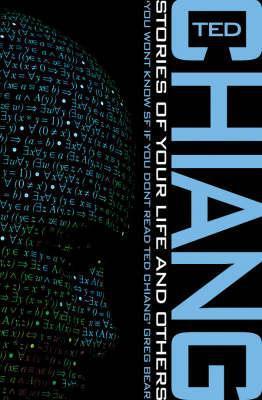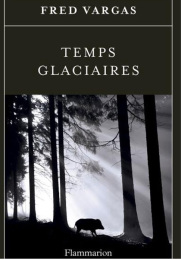
Goodreads
Publisher: Picador.
Published: 2002.
Rating: 8/10.
This collection of eight science-fiction themed short stories includes “Story of Your Life,” the inspiration behind the 2016 alien encounter film Arrival. The author, Ted Chiang, has a background in science that comes through his writing. He intelligently tackles subjects like knowledge, human existence, divinity, belief, and technology, bringing philosophical discussions to the forefront using compelling narratives.
At times, the writing is accessible to everyday readers, but on occasions, it leans more towards technical academic language, which makes it difficult to understand the stories. It should be remembered that it is, by all accounts, a sci-fi piece and may not suit every reader. Personal, I didn’t really connect with “Seventy-Two Letters” or “Hell Is The Absence of God.” The former dragged a lot plot-wise, and the latter dealt with religious devotion in a very unsatisfactory manner. “Division By Zero” and “The Evolution of Human Science” were better but still mediocre at best. The remaining four were superb.
The first short story, “Tower of Babylon,” was my favourite. It follows a group of bricklayers who are helping to construct a tower that rises toward the heavens. It takes months to reach the top, which is nearing the outer edges of the sky to where the heavens lie. The story is a metaphor for the human search for knowledge and needing to physically reach God. Ted Chiang manages to write this story is if it were an ancient tale from the time of Plato or Aristotle. It has a very biblical feel to it. The world building is also impressive. From the changing cultures and climate as the characters ascend the tower to the deserts and caves, the landscapes are immense. The inversion at the story’s close was mind-blowing. By far the best story in the collection.
“Understand” describes a man recovering from a coma, who has been given a drug to undo brain damage. The drug, however, improves his brain function and he beings to become increasingly intelligent with greater brain power. What follows is his escape away from authorities who wish to study him. He is pursued around USA but hacks IT systems to cover his tracks. It is very much in the vein of the film Lucy (2014). The story drastically improves in the third and final act as the man comes into contact with another super-intelligent subject and they end up in a mental warfare that reminded me of sections of The Bone Clocks (2014) by David Mitchell. The more action-orientated piece was a good addition to the collection.
“Story of Your Life,” the inspiration for Arrival (2014) was an intelligently written piece that delved into many subjects areas such as language, linguistic relativity, neurology, time, and geopolitics. It follows a linguist who must talk with aliens to understand why they have arrived in Earth. The story delves much deeper into the mental effects that learning the Hetapod language had on Louise than in the film. It also discussed free will vs determinism in much greater detail. It is a very intriguing story for anyone interested in how language shapes thoughts and how perspective distorts our reality and the linearity of time. What I thought the story lacked, which the film did better, were the geopolitics towards the final stages. In the film, the aliens manage to get the superpowers of Earth to cooperate and unite to assist the aliens, which improves on the lack of conclusion in the original piece.
The final story, “Liking What You See: A Documentary,” is an intriguing piece that discusses the ethics of technology and the beauty industry. The story is about calliagnosia, a brain modification that stops users from being able to discern from a typically “attractive” face from an “average” or “non-attractive” looking face. It was developed to lessen the vanity of people and tackle the beauty industry, consumerism, and media marketing. Ted Chaing creates an interesting space for the discussion of ethics and people’s ability to make objective judgements. The various characters, some of whom are traditionally more “attractive” than others must decide whether to keep their “calli” turned off or on. Their responses make for provocative discussions.
Overall, a powerful story collection with many subject areas that undoubtedly allow readers to expand and question how we see the world.
Advertisements Share this:- More





